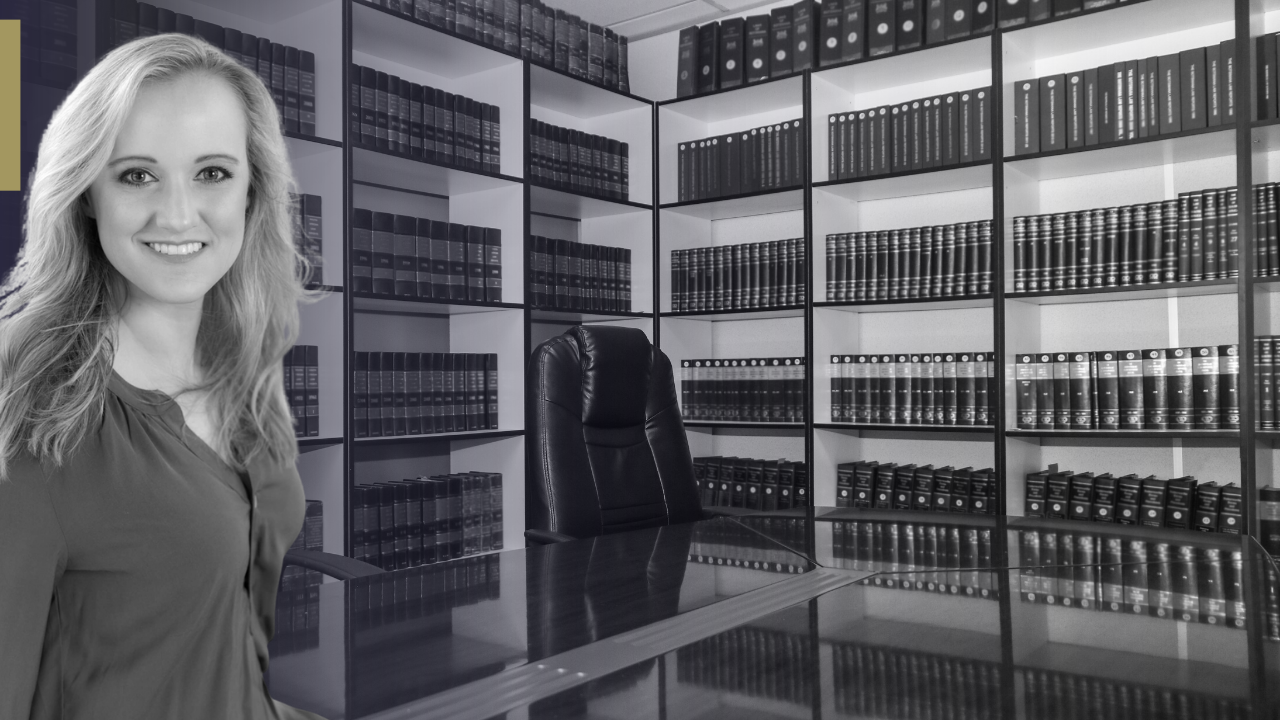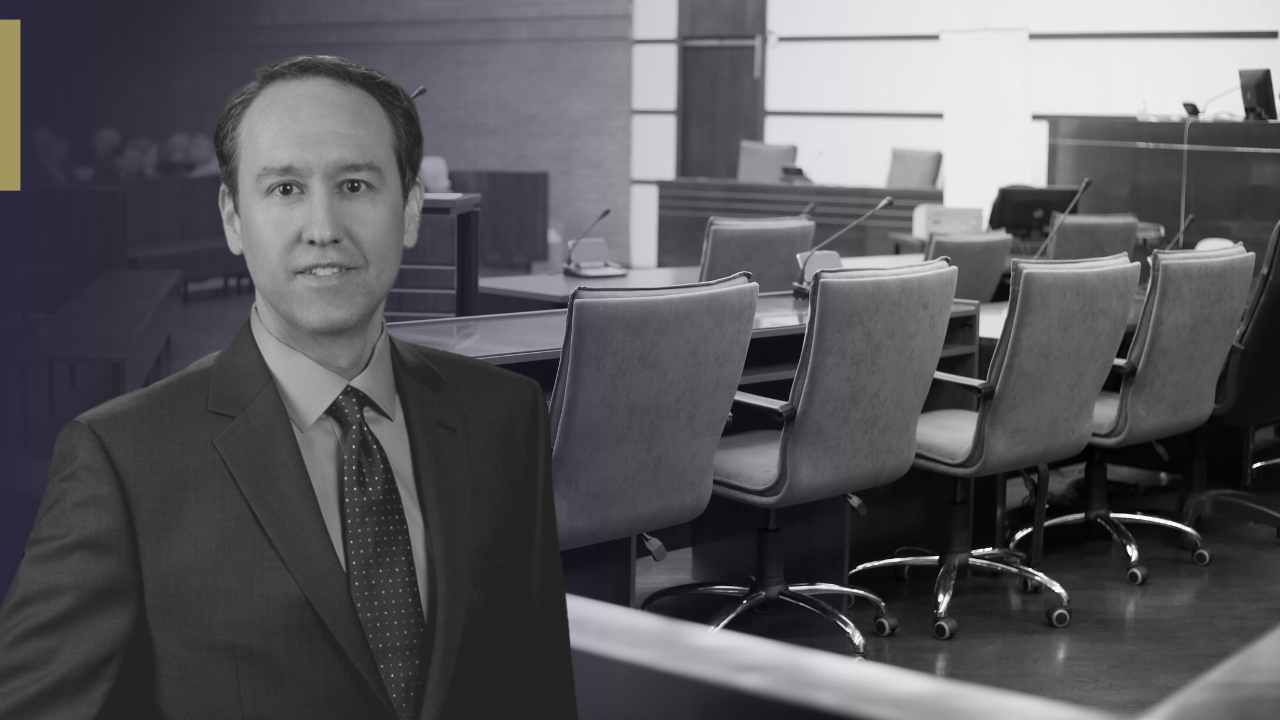A Bad Date
Drew had been looking forward to Friday all week. On Sunday, he’d matched with Alice on Bumble; on Monday, they’d set a date. They decided to go to a bar in McDonough to hear a local band play.
All week, Drew felt like he was walking on a cloud. He and Alice had an easy rapport over text messages, and he couldn’t wait to meet her in person.
Friday evening, he got to the venue early. He planned to grab drinks at the bar – one for himself and one to be ready for Alice when she arrived.
But he didn’t make it.
Just a few steps from the door, his right leg slipped out from under him. Instinctively, he reached out to steady himself. He grabbed the host stand, but it wasn’t secured. As he hit the ground, he felt a pop in his knee. The host stand toppled over on top of him, crashing into his head. A stabbing pain shot through his backside.
Waitstaff and other patrons rushed to his aid. Embarrassed, he tried to stand up. But any movement caused excruciating pain.
He was lying on the ground, staring at the ceiling, when he saw Alice’s face among the worried crowd. He wished he could evaporate into the floor.
The manager came over and started yelling at a server. “Why didn’t you clean that spill yet?” he cried. Drew glanced down and realized he was, indeed, lying in a puddle, a mess of beer and broken glass.
Another patron, a woman, shook her head in disgust. She looked at Drew and said, “That drink must’ve been lying there for fifteen minutes. I saw the guy drop it; they just left it there.”
Drew grimaced. No wonder his backside hurt so much; it was full of glass. He tried to move again, and the woman knelt down next to him. “Stay still honey, someone already called 911.”
He groaned. “No, no, we don’t need that, I’m fine.”
The woman quickly shushed him. “Don’t say that again!” she whispered, “You’re hurt, and this is not your fault.”
While it didn’t come from a lawyer, this was Drew’s first piece of legal advice, and it was absolutely correct.
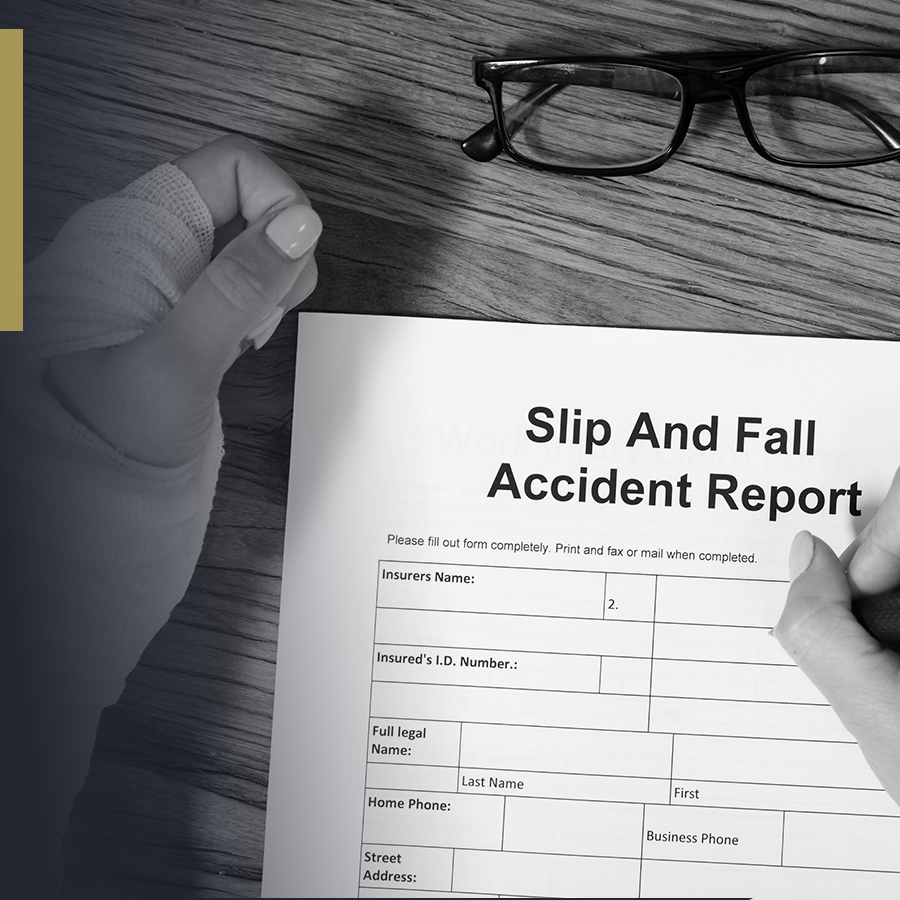
Is it a Legal Issue When You Slip and Fall?
Drew’s fall ruined his night, and it would ruin quite a few more of his coming days. He didn’t know it just then, but this was the beginning of a legal battle.
The restaurant’s management and waitstaff had violated a piece of Georgia state code known as “premises liability.”
Basically, when people are lawfully gathering on a property, they should have a reasonable expectation of safety.
This statute applies to public places (like bars, stores, parks, music venues, and more) as well as private residences.
Property owners, building managers, renters, store owners, and superintendents have a responsibility to protect people who visit their spaces. If someone is injured on a property because of a preventable hazard, the building owner or manager could be liable for their medical bills.
And Drew had quite a few medical bills. The emergency room doctor diagnosed him with a torn MCL, lacerations from the broken glass, and a concussion. He needed knee surgery, and the doctor recommended he take a leave of absence from his construction job for at least three months.
He was livid. How could he possibly afford to miss three months of work? Especially when he had bills to pay?
Each time a doctor spoke to him, he heard the woman’s words repeating in his head: “That drink must’ve been lying there for fifteen minutes.”
If she was right, did that mean the restaurant could be held responsible for the fall?
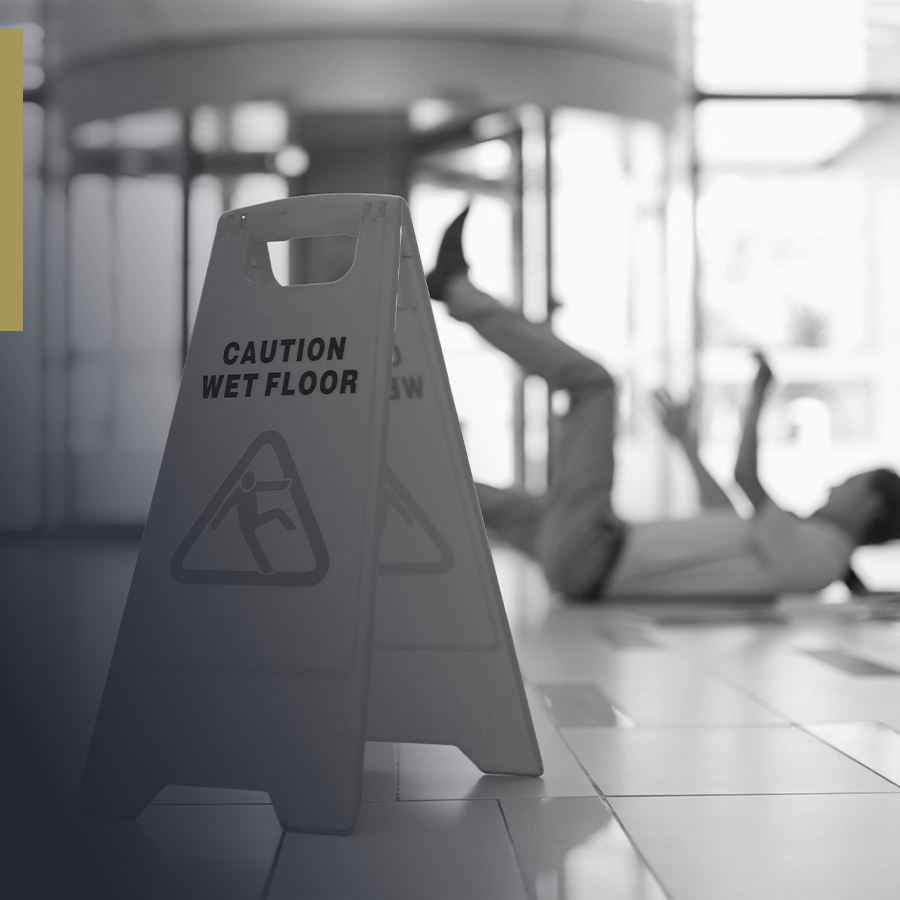
Holding Property Owners Accountable in Henry County
Drew contacted a personal injury attorney in McDonough for a consultation. Indeed, the lawyer believed he had a solid case.
Because the restaurant manager had clearly noticed the dropped drink but had not cleaned it up, he had behaved negligently. Simply telling an employee to clean the mess was not sufficient; the manager needed to make sure the area was safe for guests.
If, for some reason, a spill in a public place cannot immediately be cleaned, there are other ways to protect visitors. A yellow caution sign could have been placed over the area, or an employee could have been tasked with standing over the mess and diverting foot traffic.
But that didn’t happen. Instead, the problem was ignored.
To win a premises liability case, your legal team must prove that the owner, manager, or other party responsible for the grounds was negligent. Because an eyewitness noticed the drink lying on the ground, Drew’s lawyer felt they could easily prove negligence.
The lawyer asked if Drew had any way to contact the woman. He was about to say no when he suddenly remembered that he did. As the paramedics were loading him onto the stretcher, she had pressed her business card into Drew’s hand. He fished it out of his wallet that night and sent a photo of it to his lawyer.
Eyewitness accounts can go a long way towards proving a case. If you are ever injured in a public area and anyone else is around to see it, try to get their version of events. Ask for their name and contact information, as well.
Even cases that seem extremely simple can become complicated. Any evidence that proves your claim could be useful.
In most cases, the negligent party, or the venue where you were injured, will be covered by an insurance policy. Insurance providers are for-profit companies and will often deny valid claims to save money.
Additionally, many stores and restaurants are owned by larger parent companies with in-house attorneys. These well-funded, dedicated legal teams exist precisely to shut down lawsuits. Without a lawyer’s assistance, it can be extremely difficult to prevail in a court of law.
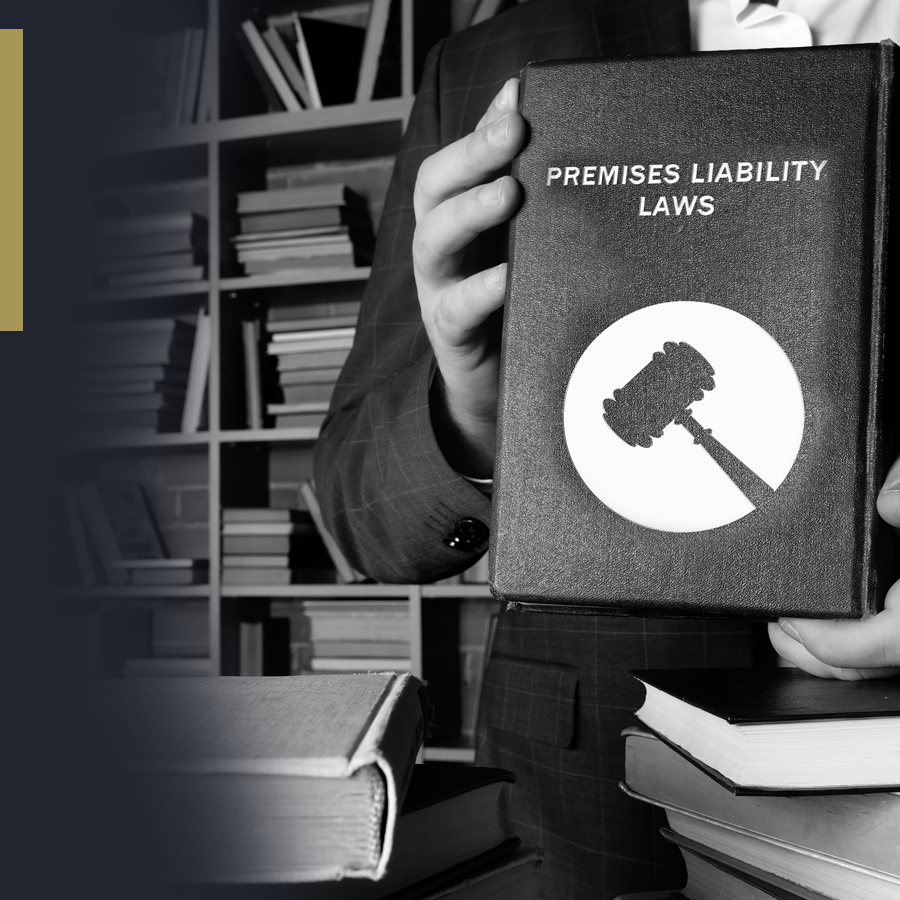
More Premises Liability Facts
Premises liability isn’t only related to slips and falls. Other common hazards include broken sidewalks, faulty steps, and in some cases, even violent attacks.
Property owners and managers must take reasonable steps to protect their guests from violence. In a heavily trafficked place, like a stadium, that could mean hiring security or putting-up metal detectors. Other places deter violence with lighting. Parking garages and parking lots must be well-lit in order to deter crime.
If someone is mugged in a parking lot where all the streetlights are burned-out, they may be able to bring a premises liability suit under a provision called “negligent security.”
Additionally, employers must do their due diligence when hiring workers. Say a woman is routinely followed and harassed by an employee in her apartment building; she reports the employee to building management, but nothing is done. A week later, he breaks into her apartment and stabs her.
When the police investigate the case, they discover the employee had a long criminal history, including multiple break-ins. The building managers could be found guilty of negligent security.
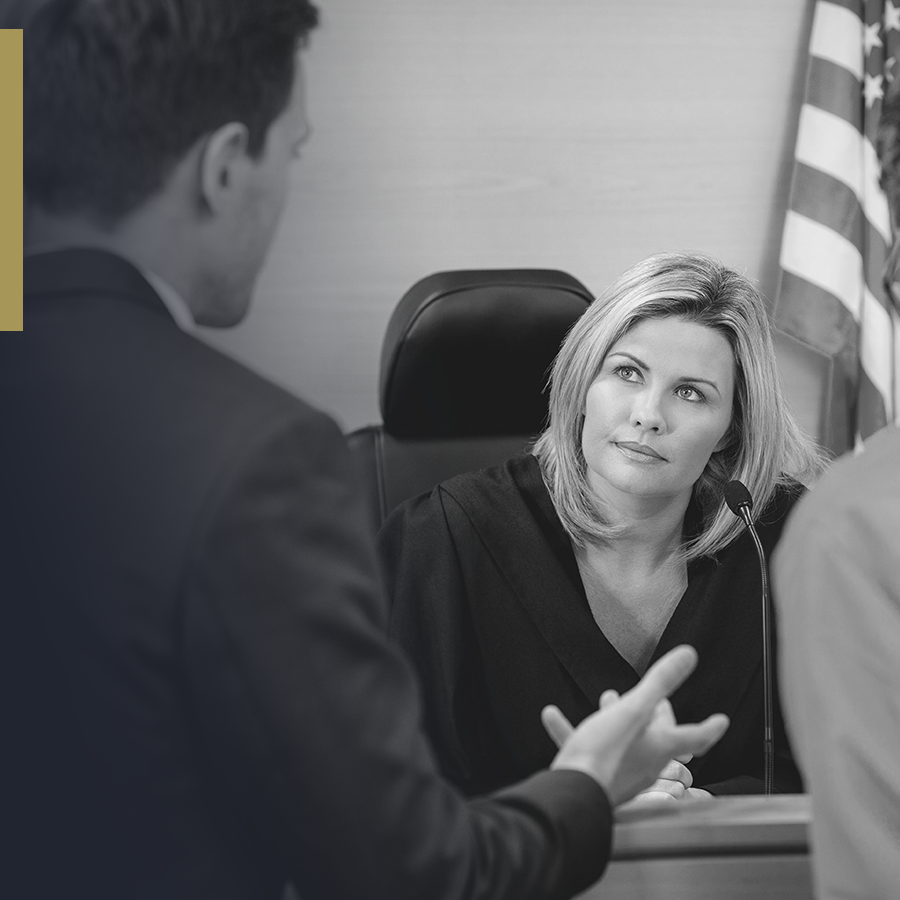
Let Your Legal Team Fight for You
Drew wasn’t alone as he fought to receive compensation. His legal team worked tirelessly on his behalf while he rested at home. His doctors were communicative, and his surgery went smoothly.
Plus, he had Alice. Despite his fears, she didn’t write him off as a klutz after their ill-fated meeting. She visited him often, and they bonded over Netflix binges and take-out.
Drew said he was only able to relax and enjoy their time together because he knew his lawyers were handling his case.
“If I’d been trying to do this all myself? Forget it. I’d have been a bitter man, up to my neck in legal documents I didn’t understand. I couldn’t have juggled all that and a cute girl,” he chuckles.

McDonough’s Best Personal Injury Attorney
If you were hurt on someone else’s property due to someone else’s negligence, you can pass that stress off to someone else, too.
Let the lawyers at Scott Key & Associates prove your case while you focus on your recovery. Call our office right now at 678-610-6624.
